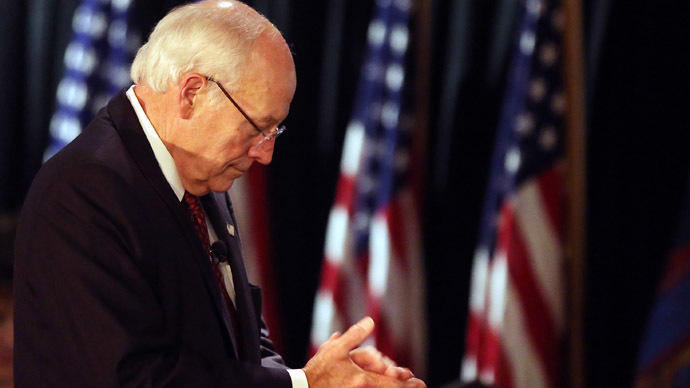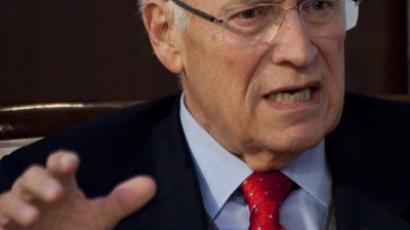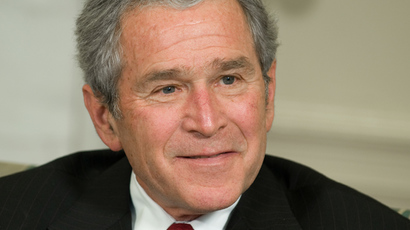Fearing assassination, former VP Cheney turned off heart monitor’s wireless function

Former US Vice President Dick Cheney was once so worried an assassin would kill him by overriding the defibrillator in his heart that he asked his doctor to disable the wire that acted as a wireless safeguard, Cheney has revealed in an upcoming memoir.
Cheney has a long history of cardiac problems, enduring his first of five heart attacks when he was just 37 years old, approximately a decade into his political career. His ongoing condition once nearly killed him, when the former vice president under George W. Bush was rushed into emergency surgery in 2010. Then, two years later, he underwent a seven hour heart transplant procedure at the advanced age of 71.
In his new book, co-written with cardiologist Jonathan Reiner, titled “Heart: An American Medical Odyssey,” Cheney reveals that Reiner replaced a defibrillator near Cheney’s heart in 2007.
The medical device is designed to identify irregular heartbeats and correct them with a series of minor electric shocks. Yet the pair agreed to turn off the defibrillator remote function in the event that a terrorist tried to kill Cheney by hacking the equipment and sending him into a cardiac arrest.
Coincidentally, Cheney saw the same situation years later as a plot point on the popular espionage TV series “Homeland.”
“I was aware of the danger, if you will, that exists, but I found it credible,” Cheney said in an interview with “60 Minutes” set to broadcast this weekend. “Because I know from the experience we had and the necessity for adjusting my own device that it was an accurate portrayal of what was possible.”
Cheney served as chief of staff under President Gerald Ford before moving to the House of Representatives, and then as the Secretary of Defense under President George HW Bush before moving to the private sector during the Clinton presidency. When the elder President Bush delivered his famous “Read My Lips” speech, Cheney wrote that he was watching from a hospital bed as a nurse shaved hair off his body in preparation for bypass surgery.
He has said that he smoked roughly three packs of cigarettes every day for upwards of 20 years, yet denied that health issues ever clouded his decision-making ability. Dr. Reiner, in the same “60 Minutes” interview, said he was concerned about Cheney on September 11, 2001 and in the direct aftermath of the terrorist attacks. A medical test administered that very morning showed Cheney had unusually high levels of potassium in his blood, indicating a potentially fatal condition known as hyperkalemia.
“Oh, great, the vice president is going to die tonight from hyperkalemia,” Reiner recalled thinking.
However, Cheney says that he feels the stress from his position in no way affected his disease.
“You know, I was as good as I could be given the fact I was a 60-some years old at that point and a heart patient,” he said. “I simply don’t buy the notion that it contributed to my heart disease. I always did what I needed to do in order to deal with the health crisis in the moment.”
By the time Cheney left office he reported difficulty breathing and, in 2009, he fell unconscious while backing out of his driveway. That was followed by nosebleeds and a loss of appetite. By 2010, just before the surgery that ultimately saved his life, Reiner wrote that “Cheney was dying.”














